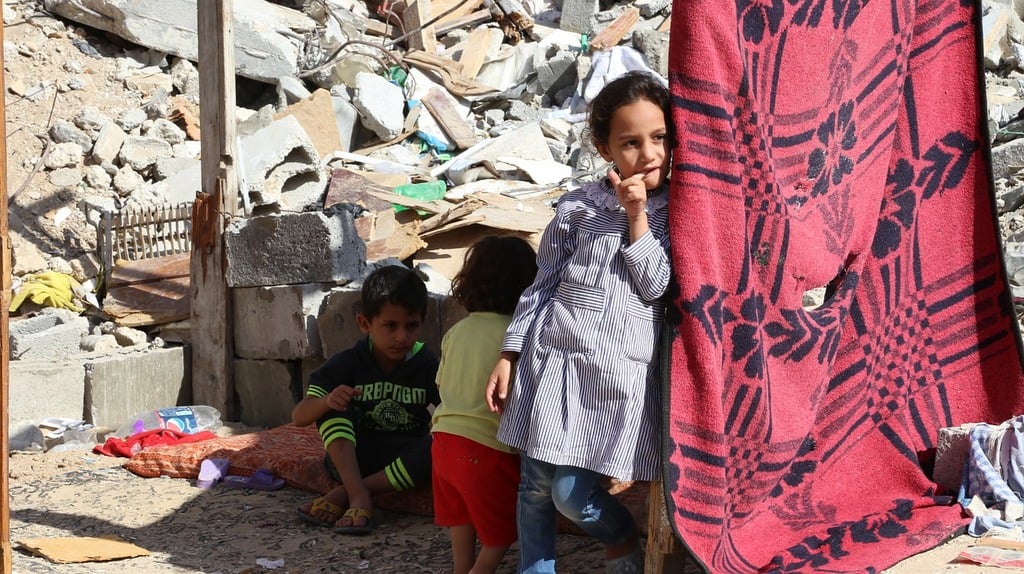In Good Company
A Review of 'The Lines that Whisper Us' by Bayo Akomolafe
I recently encountered Bayo Akomolafe for the first time through a Facebook post that caught my attention. He was using a vocabulary I wasn’t familiar with—words like cosmopoetics, paragogical, and the subjunctive—but something in the message bypassed the intellect and struck a deeper chord.
He seemed to be saying that the rush to fix our broken world—to resist, confront, overcome—might itself be part of the problem. That our solutions often carry the same grammar of dominance as the systems we oppose. That even our compassion can wound. Even our resistance can reproduce captivity.
What he offered wasn’t a new masterplan, but an invitation: to stay with the pain, the mess, the not-knowing—not as a failure, but as a deeper fidelity to what’s real, however monstrous that reality may be. A kind of fugitive dignity. It was unsettling. And yet it felt honest.
That post led me to his essay The Lines that Whisper Us, written in October 2023, as the Israel–Palestine conflict intensified. Bayo doesn’t begin with analysis or blame, but with the observation that in such moments of horror, the question that dominates is: “Where do you stand?”
In an age of instant reaction, it’s hard to resist this demand for clarity. The suffering is real. The images are brutal. But almost immediately, responses are filtered through pre-loaded scripts—ideological reflexes, inherited loyalties, online postures. Or else we look away, numbed by what we cannot hold.
Bayo pauses here. He acknowledges his own instinct to side with the oppressed, but instead of reinforcing that impulse, he questions it. What does it mean to position ourselves on a moral map already drawn? To assume there’s a fixed ethical order, and that conscience simply needs to align with it? That move, he suggests, centres the human as the measure of all things.
Instead, he offers a more fluid, more relational view: that the moral field isn’t fixed but emergent—shaped through entanglement, always in flux. When we reduce complexity to binaries—good/bad, right/wrong—we risk reinforcing the very logic of separation that underpins the crisis.
Though rooted in the heartbreak of Gaza, the essay speaks more broadly. We live in a world that urges us to pick sides, declare certainty, and defend our views to the last ounce of our being. But Bayo invites another posture—one that resists the temptation of closure and listens instead for the quieter frequencies beneath the noise. He suggests that even the idea that the world is fixable is to impose a narrative that may not be real—and may serve only to add to the situation.
This is where the essay makes its most radical gesture: it turns toward the more-than-human—the land, the winds, the spider webs, the silences. What if, he asks, accountability isn’t a human stance but a field of entanglement that includes all of this?
It’s a loosening of the assumption that humans are the sole agents of meaning. A relinquishing of the fantasy that we alone carry the burden of truth. By tuning into “the lines that whisper us,” Bayo invites a different kind of knowing—one that doesn’t dominate or declare, but listens, waits, and responds from within relationship. It speaks of vulnerability, sensitivity, and a willingness to stay with the unknowability that allows for creative responses to arise from the deep well of potential that underlies creation.
This spaciousness—the refusal to rush toward answers—isn’t an evasion of responsibility, but perhaps its deepest form. It allows us to meet the world not by dividing it into camps, but by finding a deep capacity within ourselves to hold it all in its full, bewildering wholeness.
I read the second half of the essay slowly, pausing often. I felt I was on a journey with Bayo, exploring new territory for the first time—feeling his way forward, unfolding a perspective that is deep and resonant, and takes a while to sink in past the scramble of the mind trying to pierce the concepts used.
One line that stayed with me was:
“None of us can hold this. The weight and burden of this ongoing war. None of us can stand. Our knees buckle beneath the felt suffering.”
I know that place. I’ve felt the pull to speak out, to take a stand, to do something. And yet something in me has also felt the need to simply sit with it, to let it penetrate deeply to the place inside where none of us is separate. Where I can embrace the pain as truly my pain. To recognise that the actions that fracture are also part of my psyche, my deepest felt sense of self.
And to hear—as if I said it myself—that, as Bayo suggests, “the ways we respond to the crisis at hand are the crisis” What if the instinct to be right is part of the rhythm that must be disrupted?
There’s a humility here that challenges all I think I know about who I am as an individual. He writes:
“Let’s assume that there is an impersonal force, flowing like a river… Let’s call this force, ‘desire.’” Desire—not as individual wanting, but as the very process by which reality is shaped.
“Desire does not represent reality,” he says. “It is how reality is produced.”
This reorients everything. Instead of focusing on isolated agents with private intentions, we might “sniff out connections instead.” This is subtle work—attending not only to actions but to the contexts in which they unfold.
I was particularly moved by his invitation to stretch accountability “to include things we don’t usually include when we contemplate human action.” That kind of widening doesn’t feel like giving up. It feels like waking up—to complexity, to entanglement, to the quiet presence of the more-than-human in everything we do.
It reminds me of the Buddhist concept of dependent co-arising.
And so he asks:
“What new solidarities, hybridities, surprising futures, speculative storytelling, postural gestures, bold questions, and radical hospitalities might we entertain in response to what can only be sensed in part, never as a whole?”
I don’t know. But I find myself leaning toward the question more than any answer.
I find myself moved not to rise up, but to bow down.
“Perhaps,” he writes, “the thing to do when the storm approaches is to prostrate.”
Yes. That feels true.
You can read the full article here:
https://www.bayoakomolafe.net/post/the-lines-that-whisper-us-rethinking-agency-and-accountability-in-the-middle-east-through-the-more-than-human
To explore Bayo’s work with The Emergence Network—“a collective experiment ….at the edges of the familiar”—visit:
https://www.emergencenetwork.org/
And if you’re curious about how these themes weave through my own reflections, you might like this earlier piece:

The Honesty of Staying with What Is
Sign up for updates, news, reflections, and poems, as well as occasional book or article recommendations from the edges of philosophy, mysticism, and consciousness. After signing up, you’ll receive a welcome email — please click the link to confirm your subscription (and check your spam folder if you don’t see it).

Newsletter Sign-Up
